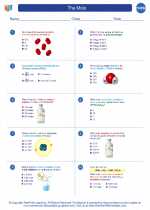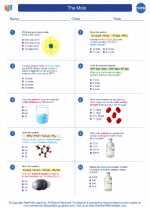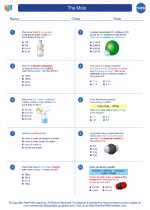Purity in Chemistry
In chemistry, purity refers to the degree to which a substance is free from impurities. Pure substances are important in chemistry because they allow for accurate and reproducible measurements and experiments. Impurities can affect the physical and chemical properties of a substance, as well as its behavior in reactions.
Types of Purity
There are two main types of purity:
- Absolute Purity: Absolute purity refers to the complete absence of impurities in a substance. This is rarely achieved in practice, but it is the ideal standard for pure substances.
- Relative Purity: Relative purity refers to the percentage of the substance that is the desired compound, as opposed to impurities. This is more commonly encountered in real-world samples.
Methods of Assessing Purity
Chemists use a variety of methods to assess the purity of a substance:
- Melting Point/Freezing Point: Pure substances have a sharp and defined melting or freezing point. Impurities can cause the melting or freezing point to be depressed or the range over which melting occurs to widen.
- Boiling Point: Like melting points, pure substances have a sharp and defined boiling point. Impurities can cause the boiling point to be elevated and the range over which boiling occurs to widen.
- Chromatography: This technique separates substances based on their different affinities for a stationary phase and a mobile phase. Impurities can be identified by their different retention times compared to the pure substance.
- Spectroscopy: Spectroscopic techniques, such as UV-Vis or IR spectroscopy, can be used to analyze the absorption or emission of light by a substance, which can reveal the presence of impurities.
- Quantitative Analysis: Techniques such as titration or gravimetric analysis can be used to determine the amount of impurities in a sample.
Importance of Purity
Purity is crucial in many areas of chemistry:
- Research and Development: To ensure that the properties of a substance are accurately studied and understood.
- Pharmaceuticals: Impure drugs can have unexpected side effects or inconsistent therapeutic effects.
- Materials Science: The properties of materials are highly dependent on their purity, especially in industries such as electronics and semiconductors.
- Environmental Analysis: To accurately measure the concentration of pollutants or contaminants in air, water, and soil.
Study Guide
To understand the concept of purity in chemistry, consider the following study guide:
- Define the terms "absolute purity" and "relative purity" and provide examples of each.
- Explain the significance of sharp melting and boiling points in determining the purity of a substance.
- Compare and contrast the techniques of chromatography and spectroscopy in assessing the purity of a substance.
- Discuss the importance of purity in the pharmaceutical industry and provide examples of how impurities can impact drug efficacy.
- Research and report on a real-world example where the purity of a substance has significant implications in industry or research.
[Purity] Related Worksheets and Study Guides:
.◂Chemistry Worksheets and Study Guides High School. The Mole
The resources above cover the following skills:
Chemistry II
Reactions
Use mathematical representations to analyze the proportion and quantity of particles in solution.
Equilibrium
Analyze and interpret data to explain the change in concentration of products and reactants, and the stable state achieved under reversible conditions.



